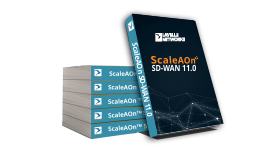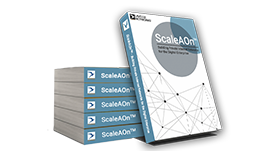Flexible Deployment and Consumption Model
We address one of the key challenges of enterprises by providing flexible deployment and consumption model for enterprises by ruling out the trend of “One Size Fits All”
As we understand that each market segment varies and needs are unique and different in terms of nature of users, the applications that they access at different market segments and even the bandwidth needs are different. Each one of these is a cost center for the enterprise, and the cost points with respect to enterprise Connectivity to each of these locations is different.
As a true software defined network platform, there is a clear separation not just in the control plane and data plane elements but there is a clear separation of the software and associated hardware systems as well which can provide the flexibility to the enterprises in terms of choosing the hardware and software based on the requirements, be it network usage or capacity.
All our hardware variants are primarily COTS appliances, and the true intelligence is in the software. Each of these variants can be physical or virtual or cloud form factor.
With respective platform diversity in terms of catering to different types of enterprise locations, we extend the same concept all the way to the software that runs on the edge platforms as well with 4 variants (Micro, Lite, Turbo and Dynamo) based on the network usage.
Our Control plane elements like CloudStation & CloudStation Insights can be deployed as a

Physical Appliance

Virtual Appliance in
the Data Center

Virtual Appliance in the Public Cloud like (AWS, Azure and Google Cloud, etc.)
The best part in terms of the Control plane deployment is that, it can even be rendered as a service with a multi tenancy in built or as single tenant. All our Data plane & Control Plane is open to integrate with the existing systems – both in case of enterprise as well as service provider deployments like integration with specific NOC and SOC applications like SolarWinds, HP OpenView or even service chaining in the Branches with the SASE vendors.
The whole system is delivered as a software based architecture. The edge software is flexible and independent of the hardware architecture. This means that one does not end up with a solution that cannot fit multiple types of locations within a customer environment. This is not a once size fits all kind of a solution and the hardware can change from one architecture to another to deliver the optimum price performance for a type of location with in a large environment
ScaleAOn is Fit for Purpose SD-WAN solution.
Network as a Service
Along with our Key ScaleAOn -SD-WAN solution we do have one more business vertical which addresses and supports the service provider or Telco Space we named it as Network Connect Service . Networking is offered as a Subscription service which degenerates into financial lease.
We offer this service typically to the service providers and the large enterprises where we address the network uptime, reachability, performance and the security .
Services included in NaaS are
Appliance in your Data Center
CloudPort Gateway is the Gateway Appliance that is deployed at enterprise data center, in the disaster recovery data center, in the public cloud like AWS, Azure or Google Cloud as the VPC or virtual network default gateway.
These Cloudport Gateway can be a pure physical appliance flavour that is a server class rack mountable appliance or typically a XEON class server with appropriate network interfaces and interface density that is deployed in the DMZ.
It could also be a virtual machine – KVM based, Hyper-V or ESXi based VM that is deployed in a virtualized data center DMZ or as a pure play native cloud format – in AWS, Azure or Google Cloud replacing the default gateway of the VPC or VNET.
The Cloudport Gateways support service chaining with any third party virtual or physical appliance for specific advanced security features with SASE vendors. The firewall in this case is the data center perimeter firewall that can run as a virtual machine on the same appliance and service chains internally on the CloudPort.
At the LAN side, the CloudPort Gateway can peer with an existing router or the core firewall of the data center, depending on the data center architecture. In the public cloud, this virtual appliance becomes the default gateway, and terminates the inbound and outbound traffic to and from the VPC or the virtual network.










